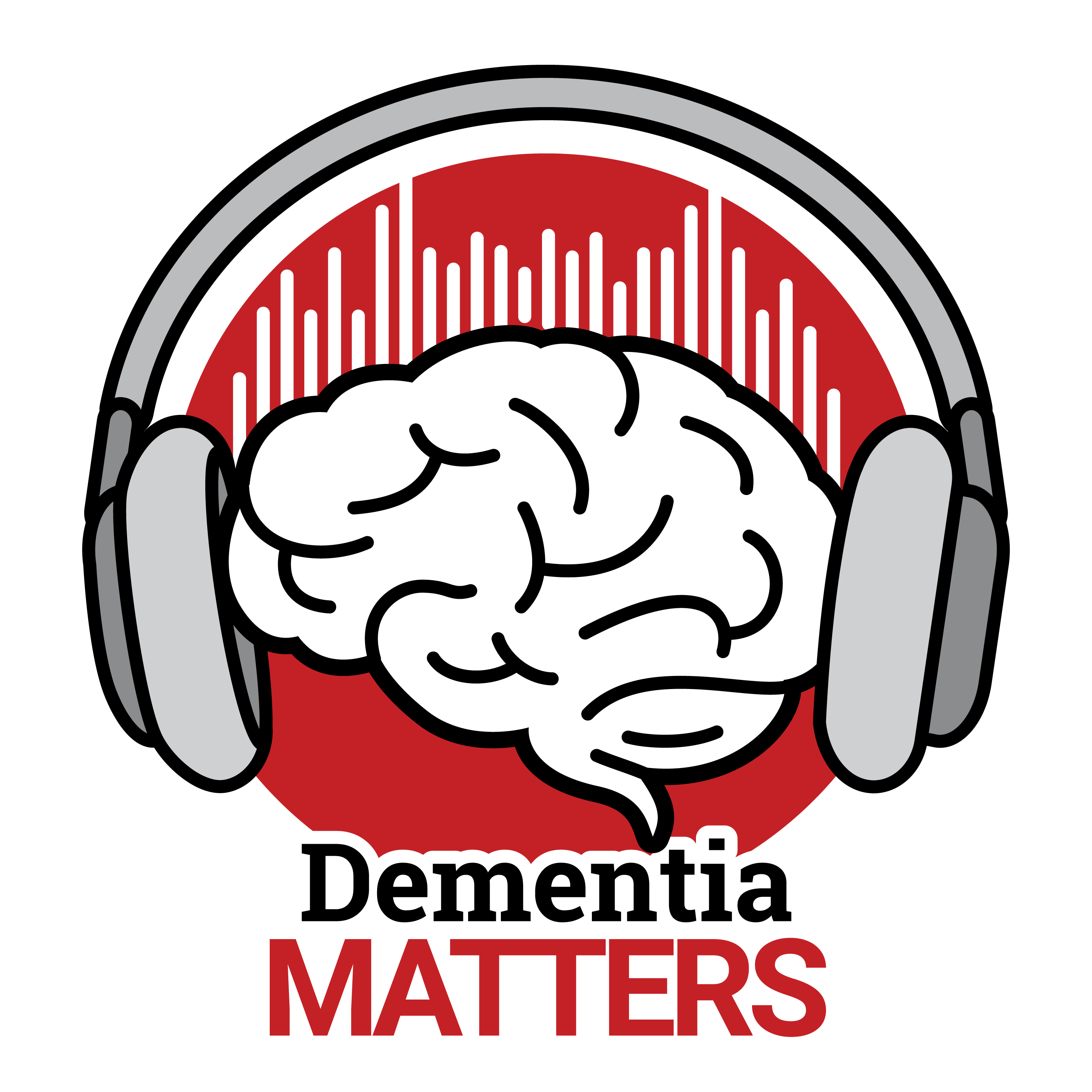

Dementia Matters
Wisconsin Alzheimer‘s Disease Research Center
Dementia Matters is a podcast about Alzheimer‘s disease and other causes of dementia. Creator and host Dr. Nathaniel Chin interviews leading scientists and caregiving experts to bring listeners the latest in Alzheimer’s disease news, research and caregiver resources. Brought to you by the Wisconsin Alzheimer’s Disease Research Center, find show notes and more resources at adrc.wisc.edu/dementia-matters.
Episodes
Mentioned books

Aug 27, 2019 • 17min
Simple Steps to Reduce Fall Risk among Older Adults
Falls are the leading injury related cause of emergency room visits, and people with dementia experience falls at about twice the rate of other older adults. But falls are not an inevitable part of aging, and balance and strength training have been proven to reduce fall risk. Our guest joins us to talk about fall risk in older adults and steps patients and caregivers can take to help reduce falls. Guest: Barbara Fischer, PhD, neuropsychologist at the Milo C. Huempfner VA Heath Care Clinic

Aug 13, 2019 • 21min
The Evolving Definition of Alzheimer’s Disease
Alzheimer’s disease researchers are developing new techniques for identifying the disease much earlier than was possible in the past. This requires patients, families, and the medical community to talk about Alzheimer’s disease and dementia in different ways. Our guest Dr. Jason Karlawish joins us to discuss the evolving definitions of Alzheimer’s disease and dementia, as well as the ethical and social issues people with dementia face. Guest: Dr. Jason Karlawish, Penn Memory Center, Professor of Medicine, Medical Ethics and Health Policy, and Neurology at the University of Pennsylvania

Jul 30, 2019 • 18min
Telemedicine Reduces Emergency Room Visits for Dementia Patients
A visit to the Emergency Department can be stressful and disorienting for a person with dementia, and oftentimes unnecessary. Dr. Manish Shah discusses his research into programs that reduce Emergency Room visits for dementia patients. Guest: Dr. Manish Shah, professor at UW School of Medicine and Public Health and Co-Leader of the Care Research Core at the Wisconsin Alzheimer's Disease Research Center

Jul 16, 2019 • 19min
Safety Tips for the Aging Driver
Dr. Chin talks with our guest about safety tips for aging drivers, caregiver considerations, and information on classes offered through AARP's Driver Safety Program. Guest: Neil McCallum, Wisconsin State Coordinator of AARP’s Driver Safety Program

Jul 2, 2019 • 22min
A Guide to Developing Mind-Body Skills for Improved Brain Health and Wellness
Learn how to increase positivity, nurture mindfullness, and combat loneliness to improve overall health and wellness. Guest: Dr. Shilagh A. Mirgain, PhD, Distinguished Psychologist with the University of Wisconsin Department of Orthopedics and Rehabilitation/UW Health

Jun 18, 2019 • 19min
Bank Supports Aging Customers with Dementia Friendly Training for Its Employees
Missteps with money management is an early warning sign of dementia, and aging customers are often targets of financial scams and abuse. This week's guest spearheaded dementia friendly training across all branches of the bank she works for in hopes of supporting and protecting aging customers. In this podcast episode, learn about River Valley Bank's Dementia Friendly program, the type of training employees completed, and how bank customers and communities reacted to the initiative. Guest: Rhonda Lewis, River Valley Bank

Jun 4, 2019 • 20min
Medication Management Tips for Seniors
Our guest discusses a wide range of pharmacological topics of interest to the aging adult and caregivers, from medication reconciliation to sleep aids to addressing how some drugs affect memory and thinking skills. Guest: Robert Breslow, pharmacist, associate professor at the University of Wisconsin School of Pharmacy

May 23, 2019 • 20min
Dementia Caregiver Turns Advocate for People with Alzheimer’s Disease
Former Badger Men’s Hockey announcer and “The Golf Affect Radio Show” host Paul Braun was a caregiver for his late wife, Karen, who had early-onset Alzheimer’s disease. Paul’s experiences motivated him to become an advocate for people with Alzheimer’s disease and raise awareness and money for research and caregiver support. Paul was instrumental in developing the American Family Insurance Championship golf tournament Birdies for Health campaign, which raises money for five health causes at UW Health. Guest: Paul Braun, radio and sports broadcasting personality

May 7, 2019 • 12min
Battling Health Disparities in Aging Research and Care
Dr. Carl Hill joins the podcast to discuss research taking place around the country that works to improve health care and access for elders in diverse racial, ethnic and socioeconomic groups. Guest: Carl Hill, PhD, MPH, Director, Office of Special Populations, National Institute on Aging

Apr 23, 2019 • 20min
Improving Care for an Aging Population through Innovative Nursing and Caregiver Programs
Dr. Barbara Bowers is an expert on improving care for older adults and people with dementia. Her work focuses on improving work life quality for formal caregivers, and developing tools to guide and support informal caregivers. Guest: Barbara Bowers, PhD, RN, University of Wisconsin-Madison School of NursingGuest: Dr. Barbara Bowers, PHD, University of Wisconsin-Madison School of Nursing.


